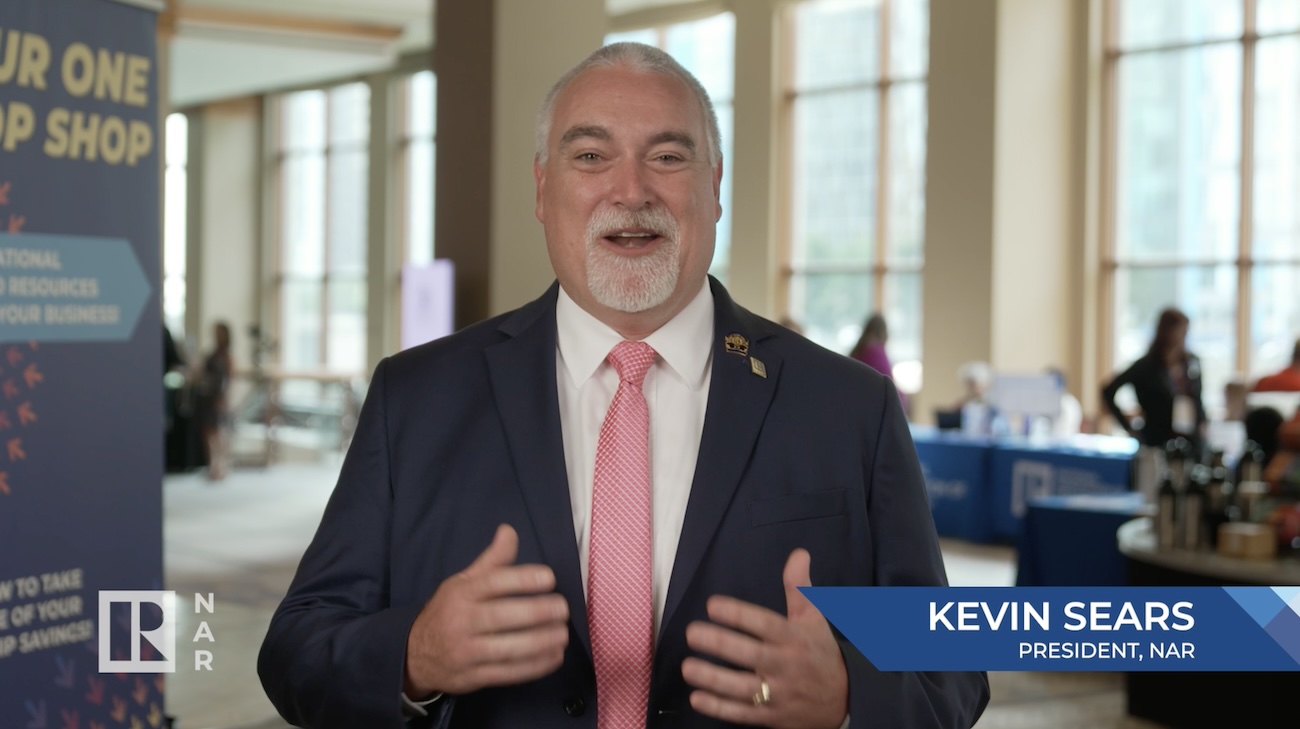WASHINGTON (May 20, 2022) – The National Association of Realtors® and the Urban Institute hosted a policy forum Friday at the National Press Club in Washington, D.C., to discuss reforming mortgage finance and other policies to make homeownership more accessible to underserved communities.
The event entitled Financing the Future of Housing featured a keynote interview with James Wylie, associate director of the Office of Fair Lending Oversight at the Federal Housing Finance Agency (FHFA), followed by two diverse panels.
"Realtors® play an important role in building a more sustainable and equitable housing system," Wylie said. "By helping homebuyers, particularly those in underserved areas and in communities of color, understand what counseling services and resources are available to them, we can work together to help close the equity gap."
Wylie broached the topic of credit score reform, which the FHFA supports, to make housing finance more inclusive. "For most, rent is the primary bill before becoming a homeowner," he said. "Consumers should get credit for that, and it should be part of underwriting."
Wylie also spoke about the housing supply issue, a top advocacy priority for NAR. "We are trying to find every angle we can on the supply issue. It's a real challenge," he said. "We are not going to solve it alone; it will require a partnership across the industry."
2022 NAR Vice President of Advocacy Kaki Lybbert provided an overview of the many ways Realtors® are working with Congress, the administration, and industry partners to expand homeownership, from championing policy proposals to increase housing supply to supporting initiatives such as the Black Homeownership Collaborative's 3by30 plan to add three million net new Black homeowners by 2030.
"Our commitment to opening the door to more homeowners is ongoing and growing," Lybbert said. "Every family deserves to have the opportunity to reap the benefits of homeownership – from building generational wealth to building memories for years to come. Thank you for working with us to make the American Dream of homeownership accessible to all."
Policy Check-Up: Retain, Repair, or Replace
In the first panel, moderated by Andrew Ackerman of The Wall Street Journal, panelists Wendy Penn, associate vice president of affordable housing initiatives at the Mortgage Bankers Association, Mike Calhoun, president of the Center for Responsible Lending, and Lisa Rice, president and CEO of the National Fair Housing Alliance, discussed the current system – what works, what doesn't, and what needs to be replaced.
"The dramatic increases in the cost of housing and financing force us to reevaluate the products and services required to provide needed housing, especially for those long denied these opportunities," Calhoun said.
Rice agreed. "Our housing and finance systems are inherently unfair," she said. "Consumers of color have to go into a biased system and landscape of unfairness in order to gain access. Special purpose credit programs allow for-profit and nonprofit entities to assess why consumers cannot access credit and design credit programs that allow those consumers to access credit in a safe and sound manner."
Penn highlighted the problems resulting from distrust in the system, including a reluctance to ask for help, especially among underserved communities. "We don't often pay enough attention to people's minor crises," she said. "A critical repair turns into a code violation, which turns into a fine, and it spirals from there. Then someone calls and says, ‘I'll buy your home for cash.' That's what's stripping the wealth out of these communities."
"We can't just get [people] into homes; we have to keep them there," Penn concluded.
Policy Resilience: Withstanding Future Shocks and Challenges
In the second panel, moderated by Marketplace Senior Correspondent Amy Scott, panelists Jerry Howard, CEO of the National Association of Home Builders, Michael Neal, principal research associate at the Urban Institute's Housing Finance Policy Center, and Jacob Corvidae, principal at RMI, discussed specific roadblocks to closing the homeownership gap and solutions to overcome them.
"Households of color continue to experience disproportionate challenges in pursuit of the American Dream and its promised benefits," Neal said. "But by exploring the benefits of new homeownership strategies targeted specifically at historically marginalized families and building in resiliency against key systemic risks, we can advance a housing market that works for everyone."
Howard outlined the dire state of housing affordability. "Right now, the average American cannot afford to buy the average house that's on the market," he said. "Construction costs have risen by 21%, labor costs have risen by 15%, and regulatory compliance costs are going back up."
Corvidae focused on how extreme weather events are exacerbating the homeownership gap – and are poised to cause even greater problems in the future. "Study after study has shown when these extreme weather events occur, they disproportionally affect communities of color and lower-income households," he said. "We need to match transparency with loan products that can … create investment to solve these problems."
The National Association of Realtors® is America's largest trade association, representing 1.5 million members involved in all aspects of the residential and commercial real estate industries.
# # #













